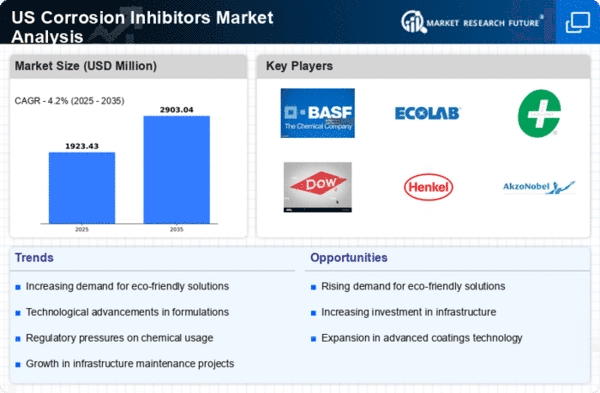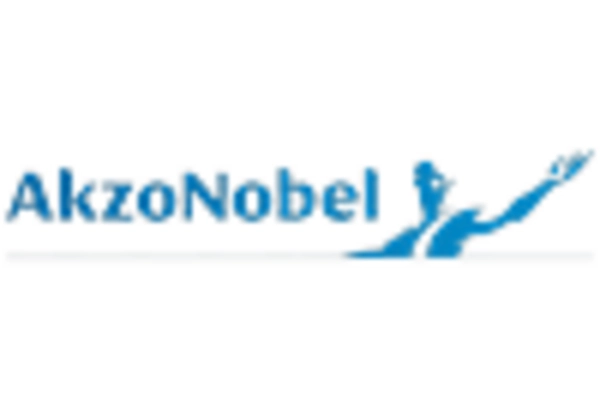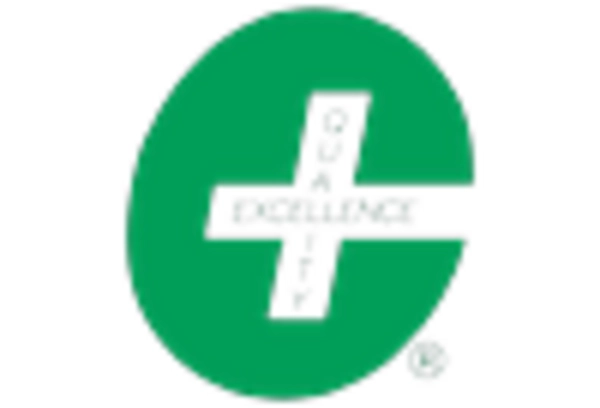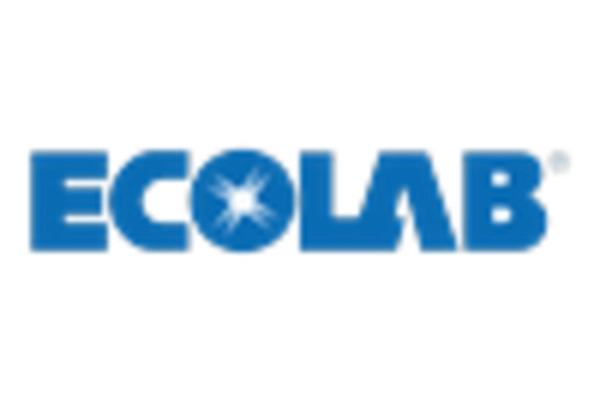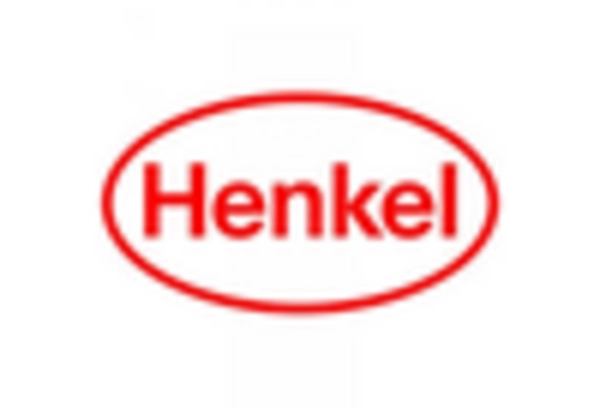The corrosion inhibitors market is currently characterized by a dynamic competitive landscape, driven by increasing industrialization and the growing need for asset protection across various sectors. Key players such as BASF SE (DE), Ecolab Inc (US), and Dow Inc (US) are strategically positioned to leverage innovation and sustainability in their offerings. BASF SE (DE) focuses on developing advanced formulations that enhance performance while minimizing environmental impact, indicating a strong commitment to sustainability. Ecolab Inc (US) emphasizes digital transformation, utilizing data analytics to optimize corrosion management solutions, which enhances customer engagement and operational efficiency. Dow Inc (US) is actively pursuing partnerships to expand its product portfolio, suggesting a strategy aimed at capturing a larger market share through collaborative innovation.The business tactics employed by these companies include localizing manufacturing to reduce costs and improve supply chain efficiency. The market structure appears moderately fragmented, with several players competing for market share. However, the collective influence of major companies like Henkel AG & Co KGaA (DE) and AkzoNobel N.V. (NL) contributes to a competitive environment where innovation and customer-centric solutions are paramount.
In October Ecolab Inc (US) announced a strategic partnership with a leading technology firm to enhance its corrosion monitoring systems through AI integration. This move is likely to bolster Ecolab's position in the market by providing clients with real-time data analytics, thereby improving decision-making processes related to asset maintenance. The integration of AI into their offerings may also set a new standard for operational efficiency in corrosion management.
In September Dow Inc (US) launched a new line of eco-friendly corrosion inhibitors designed for the oil and gas sector. This initiative not only aligns with the growing demand for sustainable solutions but also positions Dow as a leader in environmentally responsible practices within the industry. The introduction of these products could potentially attract clients who prioritize sustainability in their procurement processes.
In August BASF SE (DE) expanded its production capacity for corrosion inhibitors in North America, reflecting a strategic response to increasing demand in the region. This expansion is expected to enhance BASF's ability to meet customer needs more effectively and could lead to improved market penetration. The investment in local production facilities may also reduce lead times and logistics costs, further strengthening their competitive edge.
As of November the most pressing trends in the corrosion inhibitors market include a pronounced shift towards digitalization and sustainability. Companies are increasingly forming strategic alliances to enhance their technological capabilities and market reach. This trend suggests a future where competitive differentiation will hinge on innovation and the reliability of supply chains rather than solely on price. The emphasis on advanced technologies and sustainable practices is likely to redefine the competitive landscape, compelling companies to adapt swiftly to maintain their market positions.


